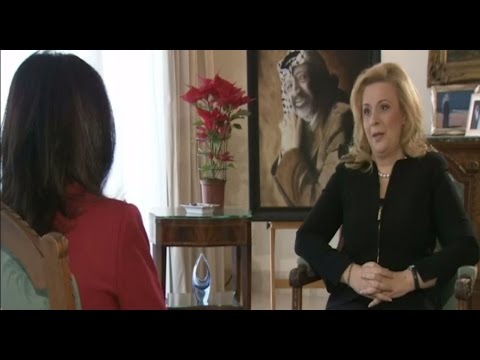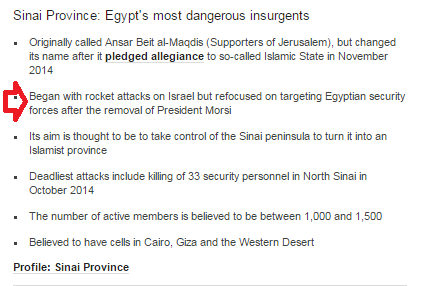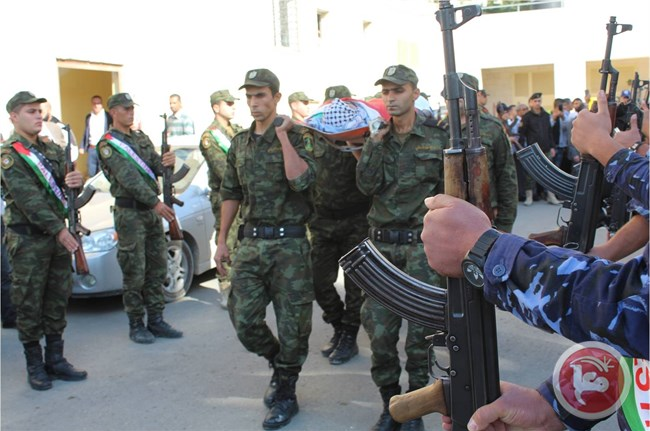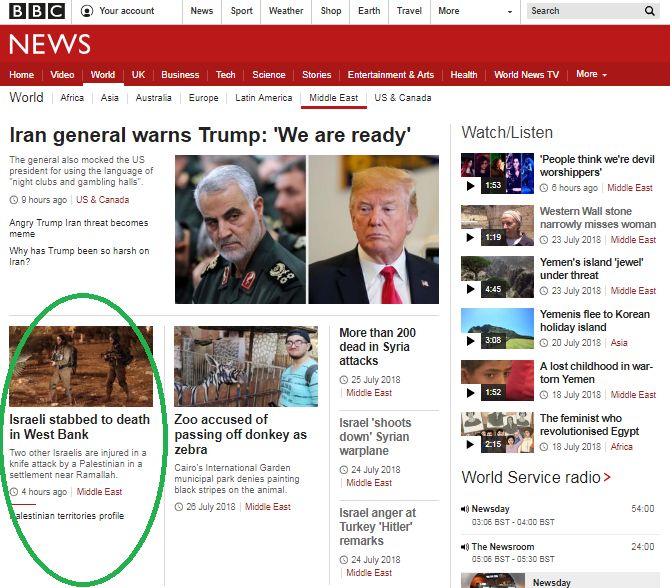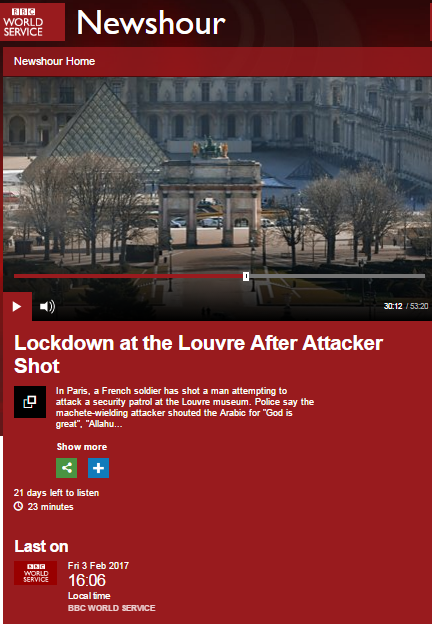An article by the BBC Jerusalem Bureau’s Kevin Connolly appeared in the ‘Features’ section of the BBC News website’s Middle East page – as well as in its ‘Magazine’ section – on September 27th under the title “The friendship that grew out of war“.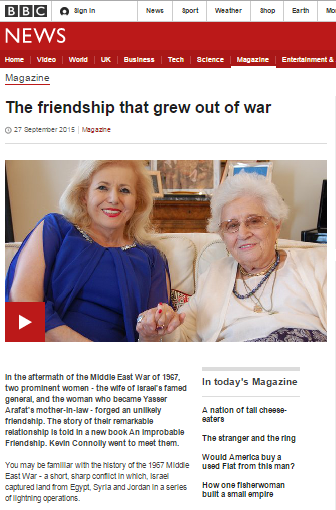
At its core, this article is promotion for a recently published book by an author with a rather obvious political agenda – one review of which can be found here. The written article and complimentary filmed and audio reports were the product of yet another BBC pilgrimage to the abode of Suha Arafat (shared apparently with her mother, who is one of the subjects of the book) in Malta.
Whilst Connolly’s report purportedly relates to the friendship between Yasser Arafat’s mother-in-law, Raymonda Tawil, and Moshe Dayan’s ex-wife, Ruth, that subject matter is used as a hook for a generous dose of political messaging. At the beginning of the article Connolly writes:
“You may be familiar with the history of the 1967 Middle East War – a short, sharp conflict in which, Israel captured land from Egypt, Syria and Jordan in a series of lightning operations.”
At the beginning of the audio version of his report broadcast on BBC Radio 4’s ‘Today’ programme on September 26th Connolly erases Israel’s withdrawal from Sinai and peace agreement with Jordan from history, saying:
“You will know the narrative of the Middle East war of 1967 – of how Israel captured territory from Egypt and Syria and Jordan: a history of occupation and division which remains unsolved.”
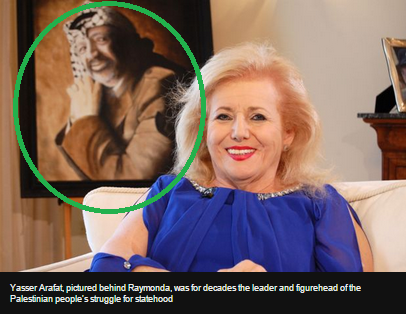
BBC audiences of course are anything but familiar with the history of the Six Day War because material produced by the corporation on that topic repeatedly conceals the fact that the Gaza Strip, Judea & Samaria and parts of Jerusalem which were occupied by Egypt and Jordan for nineteen years prior to that conflict were included in the territory assigned to a Jewish homeland by the League of Nations and consistently downplays the threats of annihilation of Israel issued by Nasser and others in the run-up to the 1967 war.
“Our forces are now entirely ready not only to repulse the aggression, but to initiate the act of liberation itself, and to explode the Zionist presence in the Arab homeland. The Syrian army, with its finger on the trigger, is united….I, as a military man, believe that the time has come to enter into a battle of annihilation.” (Hafez al Assad, May 1967)
“Our basic objective will be the destruction of Israel. The Arab people want to fight,” (Gamal Abdel Nasser, May 27th 1967)
“We will not accept any…coexistence with Israel…Today the issue is not the establishment of peace between the Arab states and Israel….The war with Israel is in effect since 1948.” (Gamal Abdel Nasser, May 28th 1967)
Examples of that editorial policy have been documented on these pages on several prior occasions:
BBC’s ‘History of Syria’ erases ancient Jewish community, distorts Six Day War
BBC online description of Six Day War: not accurate, not impartial, barely informative
BBC: Nasser ‘asked’ UN peacekeepers to leave Sinai in 1967
Article ruled not impartial by ESC five years ago remains on BBC website
BBC R4 promotes unchallenged anti-Israel propaganda and warped histories of Jerusalem
BBC WS ‘The History Hour’ breaches impartiality guidelines with Palestinian activist
BBC WS radio’s ‘balanced’ account of the Six Day War excludes Israelis
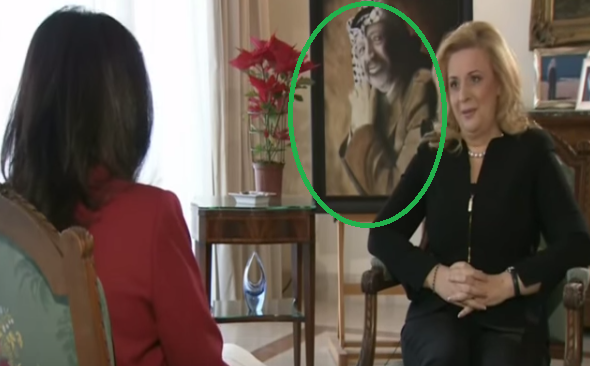
A by-product of that problematic editorial policy is the frequency of complaints made concerning misrepresentation of the Six Day War. With Connolly’s reporting on that topic already having been found wanting by the BBC Trust’s Editorial Standards Committee and the ESC having upheld an appeal concerning a complaint about some very similar phrasing to that used by Connolly in this article, one might have expected him to choose his words more carefully.
“The [Editorial Standards] Committee decided that the events of the Six-Day War were so important in the history and politics of the Middle East, and remain so today, that, despite the brevity of the reference, more context was required and the need to use clear and precise language was particularly acute in relation to content dealing with conflict in the Middle East, as the Committee has also stated in previous findings. The Committee appreciated that this was one line in an otherwise informative and nuanced programme, but concluded that, particularly given the evidence that Jordan launched attacks on Israel before Israel’s forces were engaged, it was not duly accurate to describe the events on 5 June 1967 in the way this programme did. The Committee decided the programme breached the Editorial Guidelines on Accuracy. “
But no: after the above opening lines, Connolly – failing to mention either the pre-1967 Syrian attacks from the Golan Heights which plagued adjoining Israeli communities, the peace agreement with Jordan, the Oslo Accords which gave the Palestinian Authority control over the vast majority of its population, the second Intifada or Israel’s disengagement from the Gaza Strip – goes on:
“The territorial issues with the Egyptians were resolved in the Camp David Accords at the end of the 1970s. But in other respects the Middle East continues to live with the consequences of the fighting that ended 48 years ago.
The war of 1973 represented a failed attempt by the combined armies of Syria and Egypt to reverse the outcome. So Israel remains in control of the Golan Heights with its apple orchards and rolling pastures. And the West Bank of the River Jordan, with its huge Palestinian population and its growing number of Jewish settlers, is still under Israeli military occupation.”
A similar lack of context and relevant background information is seen later on:
“There was the grim drumbeat of history to emphasise the difficulty of it all – the war of 1973, the Israeli invasion of Lebanon in 1982 and the start of the first intifada, or Palestinian uprising in 1987.”
“Dayan, Weizman and Arafat are long dead and a lasting agreement seems almost as remote today as it did on the day when Israel’s tanks rumbled into Nablus back in 1967.”
But of course all this context-free portrayal of Israeli action and repeated erasing of any Palestinian or Arab actions is backdrop for Connolly’s core political take-away messaging.
“I brought footage from the BBC archives to show Raymonda – news reports from the late 1970s in which she appeared as a voice of the Palestinians of the West Bank warning that Jewish settlers would have to leave before there could be a chance of peace.
She watched the images of her younger self in thoughtful silence then said: “My God, the answers I’m giving are the same answers now. It hasn’t changed.””
Just as BBC audiences remain deprived of the information which would allow them to be truly “familiar with the history of the 1967 Middle East War”, they are also lacking the full range of information which would enable them to understand why “a chance of peace” remains elusive today. And as long as articles such as this one continue to promote politically motivated messaging by means of selective erasure of crucial parts of the story which hinder the BBC narrative, that will remain the case.
Related Articles:
The Six-Day War (CAMERA)
Resources:
BBC Radio 4 – contact details
BBC News website – contact details

